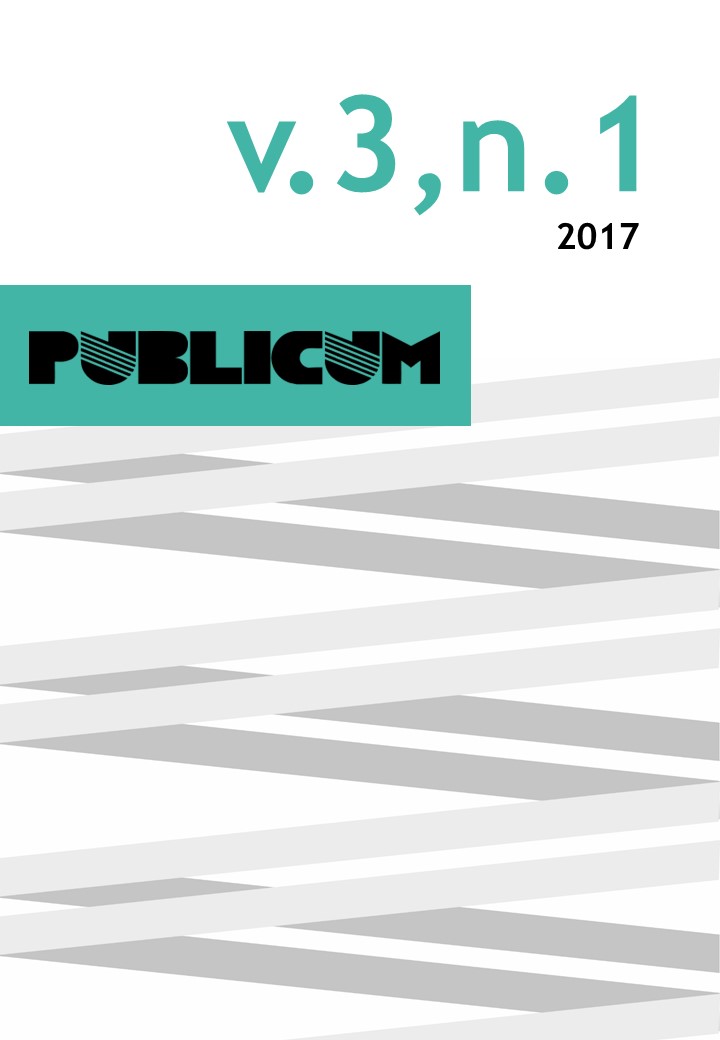O transexual e o direito ao esquecimento no ciberespaço após a mudança de gênero: por um tratamento compatível com o constitucionalismo contemporâneo brasileiro, de promoção aos direitos fundamentais e garantia à diversidade
DOI:
https://doi.org/10.12957/publicum.2017.25187Keywords:
Ciberespaço, Direito ao esquecimento, Direitos de Personalidade, Liberdade de Expressão e Informação, Transexualidade.Abstract
Este trabalho expõe o resultado de uma pesquisa bibliográfica, utilizando-se dos métodos dedutivo, para fins de abordagem, e monográfico, a título procedimental, sobre a temática direito ao esquecimento. Para tanto, realizou-se um estudo dos principais aspectos referentes ao tema, tendo por principal objetivo analisar a viabilidade da aplicação do direito ao esquecimento, para excluir do ciberespaço a vida passada do transexual, enquanto figurava juridicamente como pessoa de outro gênero. No decorrer do trabalho, buscou-se o esclarecimento de questões importantes à temática, como o seguinte problema: é possível aplicar o direito ao esquecimento, como fundamento de determinação judicial para, após a alteração do registro civil do transexual, mediante sua manifestação de vontade, retirar do mundo virtual todo o conteúdo que vincula seu nome e imagem ao gênero que deixou de pertencer? Qual o caminho a ser perseguido pelo julgador ante a colisão dos direitos fundamentais à liberdade de expressão e informação, com os direitos de personalidade, no tocante à honra, à imagem, ao nome e à privacidade? Por fim, dentre os resultados encontrados, conclui-se que o direito ao esquecimento deve preponderar ante os direitos à expressão e informação, eis que dizem respeito a intimidade da pessoa, sendo a ponderação entre os direitos fundamentais envolvidos, a ferramenta de que dispõe o julgador para conferir dignidade ao transexual que queira o esquecimento de sua vida associada ao gênero anterior, publicada no ambiente virtual.Downloads
Published
How to Cite
Issue
Section
License
The author(s) of the paper declare(s) to know and agree to the following rules:
1) The author(s) undertook the work presented to the journal, being entirely responsible for the ideas and concepts therein transmitted, which do not necessarily correspond to the point of view of Publicum’s Editors.
2) The ethical principles alluded to in the evaluation policy of the journal [RDN1] were met in the conduction of the work presented to submission.
3) The author(s) assume(s) authorship and responsibility for their work, declaring that it does not infringe any third party intellectual property rights.
4) The author(s) take(s) full responsibility for moral or patrimonial damages that the distribution of the work may generate to third parties.
5) The author(s) grant(s) the journal the rights to reproduce, edit and first publish the paper in any media – in particular in digital form – in an electronic archive on the Internet.
6) The author(s) confer(s) the right to the editors to modify the text submitted, without prejudice of its contents, when necessary to standardize the presentation of the works and to meet the norms of the journals’ own edition.
7) The author(s) agree(s) to the final form of the paper approved by the journal.
8) The author(s) authorize(s) the disclosure of the paper in the channels of communication of the Faculty of Law of UERJ.
9) The author(s) agree(s) with the reproduction of short extracts from the paper in other UERJ publications.
10) The author(s) recognize(s) that, through the abovementioned assignment and authorizations, he/she/they will not receive payment under any modality, meaning these will have the nature of scientific collaboration.
11) The author(s) is(are) aware that publication of the work may be refused if it is not considered appropriate, for any reason, whatsoever, and such refusal does not create responsibility and/or burdens of any kind to the journal or UERJ.
[RDN1]Ver COPE.

Publicum está licenciado com uma Licença Creative Commons Atribuição-NãoComercial 4.0 Internacional.

